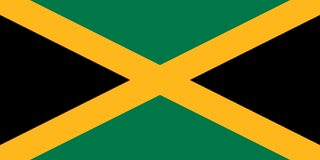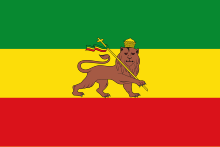
Baruch Hagai is an Israeli paralympic champion.

Ethiopia's participation in the Paralympic Games has been sporadic. The country made its Paralympic début at the 1968 Summer Games in Tel Aviv, sending two competitors who both competed in both athletics and table tennis. Ethiopia was then absent from the Games for almost a decade, returning in 1976 with a one-man delegation Abraham Habte, who entered athletics, lawn bowls and table tennis. In 1980, Habte was again Ethiopia's only representative, this time competing only in lawn bowls. Ethiopia then entered a prolonged period of absence, before sending a single runner to the 2004 Games. In 2008, the country entered a two-man delegation in athletics. In 2012, Wondiye Fikre Indelbu became the first Ethiopian to win a medal in the Paralympic Games, winning a silver in the men's 1500 meters - T46 event in athletics.

Finland competed at the 1968 Summer Paralympics in Tel Aviv. It was the country's second participation in the Paralympics. Despite a good result in 1960, Finland did not take part in the 1964 Games. Finland again sent just one competitor: Veikko Puputti, who entered the men's javelin and club throw. He did not win any medal.
Zipora Rubin-Rosenbaum is an Israeli athlete who has won 31 Paralympic medals. She has represented Israel at the Summer Paralympic Games seven times and has competed in athletics, swimming, table tennis, and wheelchair basketball at the Games.
The 1968 Summer Paralympics was an international multi-sport event held in Tel Aviv, Israel, from November 4 to 13, 1968, in which athletes with physical disabilities competed against one another. The Paralympics are run in parallel with the Olympic Games; these Games were originally planned to be held alongside the 1968 Summer Olympics in Mexico City, but two years prior to the event the Mexican government pulled out due to technical difficulties. At the time, the event was known as the 17th International Stoke Mandeville Games. The Stoke Mandeville Games were a forerunner to the Paralympics first organized by Sir Ludwig Guttmann in 1948. This medal table ranks the competing National Paralympic Committees (NPCs) by the number of gold medals won by their athletes.

Roberto Marson was an Italian multisport athlete who competed at the Summer Paralympics on four occasions and won a total of 26 Paralympic medals. He lost the use of his legs when a pine tree he was chopping down fell on his back.

Great Britain was one of twenty-eight nations to send athletes to the 1968 Summer Paralympics in Tel Aviv, Israel from November 4 to 13, 1968. The team finished second in the medal table and won sixty-nine medals: twenty-nine gold, twenty silver and twenty bronze. Athletes from the whole United Kingdom, including Northern Ireland, were able to compete for the team. Seventy-five British athletes took part in the Games; fifty-one men and twenty-four women.

Australia competed at the 1968 Summer Paralympics in Tel Aviv, Israel. The Games significantly expanded in 1968 when compared to previous years, as did the Australian team and the events included in the Games. Mexico City were originally to host the 1968 Paralympics, however, they were moved to Tel Aviv in Israel.

Israel was the host nation of the 1968 Summer Paralympics in Tel Aviv. The Israeli team finished third in the medal table and won sixty-two medals: eighteen gold, twenty-one silver and twenty-three bronze. Over 750 athletes from 28 nations took part in the Games; the Israeli team included 53 athletes, 37 men and 15 women.

Jamaica was one of twenty-eight nations that competed at the 1968 Summer Paralympics in Tel Aviv, Israel from November 4 to 13, 1968. The team finished fourteenth in the medal table and won a total of five medals; three gold, one silver and one bronze. Eleven athletes represented Jamaica at the Games; seven men and four women.

South Africa was one of twenty-eight nations that sent athletes to compete at the 1968 Summer Paralympics in Tel Aviv, Israel from 4 to 13 November 1968. The team finished tenth in the medal table and won a total of twenty-six medals; nine gold, ten silver and seven bronze. Eight South African athletes competed at the Games; five men and three women.

Ireland was one of twenty-eight nations to send a delegation to compete at the 1968 Summer Paralympics in Tel Aviv, Israel from November 4 to 13, 1968. The team finished nineteenth in the medal table and won a total of nine medals; four silver and five bronze. Seven Irish athletes competed at the Games, five men and two women.

Spain was one of twenty-eight nations that competed at the 1968 Summer Paralympics in Tel Aviv, Israel from November 4 to 13, 1968. The team finished twenty-first in the medal table and won four medals: three silver and one bronze, all in swimming events. The Spanish team contained eleven athletes; nine men and two women.

Austria competed at the 1968 Summer Paralympics in Tel Aviv, Israel from November 4 to 13, 1968. The team finished fifteenth in the medal table and won a total of nineteen medals; two gold, seven silver and ten bronze. Thirty-one Austrian athletes competed at the Games; nineteen men and twelve women.

India competed at the 1968 Summer Paralympics held in Tel Aviv from 4 to 13 November 1968. The nation made its official debut at the 1968 Games. India sent a contingent consisting of ten athletes for the Games and did not win a medal.

Elaine Annette Schreiber was an Australian Paralympic table tennis player and field games athlete. She contracted Poliomyelitis as a child.

Batia Mishani was an Israeli athlete. Between 1964 and 1968, she competed for Team Israel at the Paralympic Games, winning a total of four gold medals, five silver medals, and three bronze medals before retiring.
Yitzhak Gil-Ad is a former Israeli Paralympic competitor.
Geula Siri is a former Israeli athlete who has won 7 Paralympic medals.
Joseph Sharav was an Israeli paralympic competitor in four Summer Paralympic Games and won five bronze medals in para table tennis, shooting (1976) and wheelchair basketball (1964).















